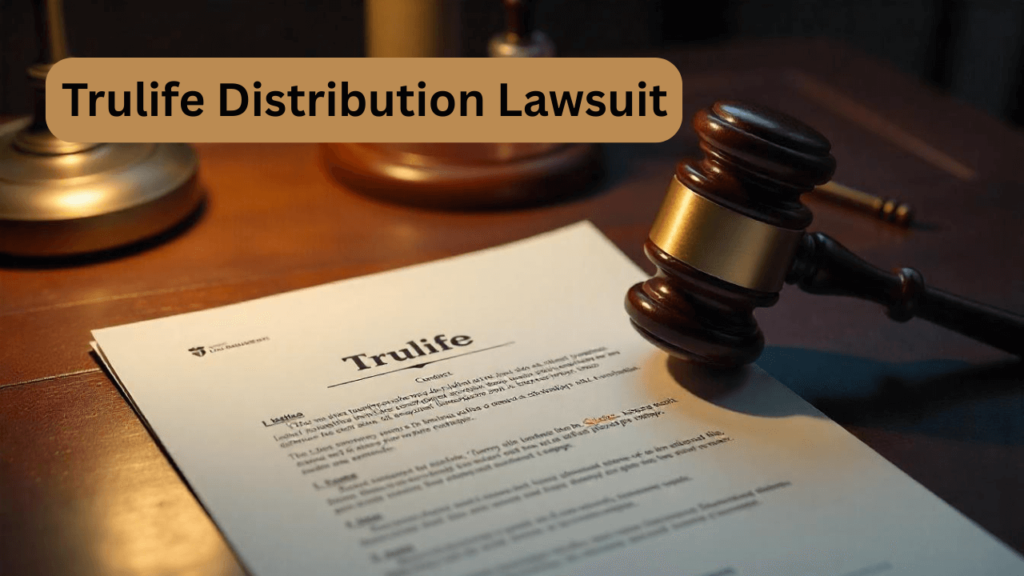The Smoothstack lawsuit has brought attention to important discussions around employee rights, tech training contracts, and labor practices in the modern workforce. Smoothstack, a tech staffing and training firm, has been accused of enforcing controversial training repayment agreements (TRAs) that some former employees claim are exploitative. These agreements allegedly bind workers to the company under the threat of paying hefty fees if they leave early.
At the heart of the lawsuit is the claim that Smoothstack’s employment practices may violate the Fair Labor Standards Act and restrict fair career mobility. The Smoothstack lawsuit is a signal to job seekers in tech and other industries to scrutinize contracts more closely. With rising concerns about training bonds and non-compete clauses, this case is shaping up to be a landmark moment in employment law.
What Sparked the Smoothstack Lawsuit? A Closer Look at the Allegations
The lawsuit centers around Smoothstack’s use of training repayment agreements. These contracts require new employees to undergo unpaid training and commit to working for the company for a fixed time, often two years. If they quit or are terminated early, they may be forced to pay back up to $23,875 for the training they received.
Three former employees filed the lawsuit, alleging that:
- The training program was unpaid and sometimes involved over 40 hours per week.
- Smoothstack treated them as employees during training without offering fair wages.
- The repayment demand was so high it created a financial penalty for leaving, which violates labor laws.
Key Issues Raised:
- Training or Employment? Plaintiffs argue they were treated like employees during training without compensation, which may breach wage laws.
- High Financial Burden: The alleged $23,875 repayment penalty could deter workers from leaving, functioning like a non-compete clause.
- Freedom to Switch Jobs: Critics argue these contracts limit professional freedom and trap employees in unfair work environments.
The Smoothstack lawsuit sheds light on how some companies attempt to retain talent through restrictive agreements rather than competitive pay and work culture. It also raises concerns about how emerging tech companies are navigating labor regulations, especially in high-turnover industries.
Training Repayment Agreements: Legal or Problematic?
What is a TRA?
A Training Repayment Agreement (TRA) is a clause in an employment contract where an employee agrees to reimburse the company for training costs if they leave before a specified time. While not illegal, TRAs can become problematic if:
- The cost is excessive or not proportionate to actual training expenses.
- The employee didn’t voluntarily choose or agree to the training terms clearly.
- The agreement acts as a disguised non-compete clause.
Potential Legal Violations
If the unpaid training period involved job duties, Smoothstack may have breached:
- The Fair Labor Standards Act (FLSA) – requiring minimum wage and overtime pay.
- State labor laws – many states require clear and fair employment terms.
- Anti-retaliation protections – if repayment clauses discourage whistleblowing or job changes.
Legal experts argue that agreements like these may discourage employees from reporting issues or seeking better opportunities. It highlights the fine line between investing in employee development and exploiting financial dependency.
Comparison Table: Traditional Employment vs. Smoothstack Model
| Aspect | Traditional Employment | Smoothstack TRA Model |
|---|---|---|
| Training Paid | Yes | No (allegedly) |
| Binding Period | Usually None | Up to 2 years |
| Repayment if Leaving Early | No | Up to $23,875 (reported) |
| Legal Controversy | Rare | Ongoing Lawsuit |
| Career Flexibility | High | Potentially Limited |
Employee Voices: Real Stories Behind the Lawsuit

Several former Smoothstack employees have spoken publicly or anonymously about their experiences. Their testimonies are central to the lawsuit and reflect broader concerns within the tech staffing world.
Common Complaints:
- Long, unpaid training hours: Employees claim they worked over 40 hours weekly without pay during the training phase.
- High financial threat: Leaving the company early meant risking massive debt.
- Lack of transparency: Some reported not fully understanding the TRA until after joining.
For many, the core issue isn’t the training itself but the power imbalance created by the repayment clause. Employees felt trapped, unable to seek better jobs without financial punishment.
Smoothstack’s Defense and Corporate Response
Smoothstack has denied any wrongdoing and is defending its business model, stating that:
- Its training programs are a valuable investment in employee skills.
- Employees sign contracts voluntarily and are made aware of the TRA.
- The repayment clause ensures return on investment and discourages job-hopping.
They argue that the Smoothstack lawsuit overlooks the value of the training provided and that enforcement of TRAs is a legitimate business practice. The company insists it complies with all relevant labor laws and will continue operating transparently.
However, critics say that transparency isn’t enough when contracts are designed in ways that can intimidate or financially trap young professionals, especially those new to the tech industry.
Industry Impact: Will the Smoothstack Lawsuit Change the Game?
This case could have far-reaching consequences. If courts rule against Smoothstack, it may discourage other tech staffing firms from using aggressive TRAs. It might also encourage federal agencies to clarify guidelines around unpaid training and repayment agreements.
Potential Outcomes:
- Regulatory Crackdown on unfair TRAs across industries.
- Higher Demand for Fair Contracts among job seekers.
- Reputation Damage for companies using similar practices.
Already, this lawsuit has sparked conversations on platforms like Reddit, LinkedIn, and tech career forums. Employees are urging each other to read contracts carefully and consult legal professionals before signing agreements with repayment clauses.
Tips for Job Seekers Considering Training Contracts
If you’re applying for a job with a training repayment agreement, consider these tips:
- Ask for total cost breakdowns of the training fee.
- Consult a lawyer before signing, especially if penalties exceed $5,000.
- Check for alternatives in the market that offer paid training or upfront benefits.
- Research the company’s reputation on forums like Glassdoor or Reddit.
Being aware and informed is the first step toward avoiding situations like those described in the Smoothstack lawsuit. If you’re considering your next career move, learn what it’s like to work in Nuzillspex Advisors Ltd.
FAQs About the Smoothstack Lawsuit
1. What is the Smoothstack lawsuit about?
The lawsuit accuses Smoothstack of enforcing unfair training repayment agreements, unpaid training periods, and practices that allegedly violate labor laws.
2. Are training repayment agreements legal?
Yes, but only if they’re reasonable, clearly disclosed, and don’t function like non-compete clauses. Excessive fees or unclear terms may be challenged in court.
3. What happens if Smoothstack loses the case?
If the plaintiffs win, Smoothstack may need to revise its contracts, pay damages, and could face increased regulatory scrutiny.
4. Can other companies be sued for similar practices?
Yes. If other companies use similar contracts that violate labor laws, employees could file lawsuits or complaints with labor departments.
Conclusion
The Smoothstack lawsuit is more than just a legal battle; it’s a wake-up call for both employers and employees in the tech industry. It reminds us how easily the lines between opportunity and exploitation can blur when financial pressure is involved. As the case progresses, it will likely influence contract law, employee rights, and tech staffing policies for years to come.
Always read your contracts, understand your rights, and don’t hesitate to seek legal advice when something feels off. This lawsuit is proof that standing up for fairness can lead to meaningful change—even against large companies.


